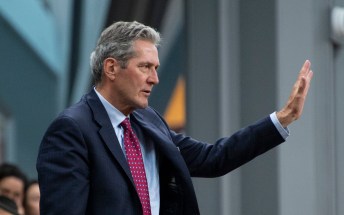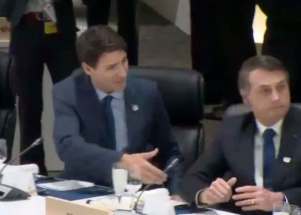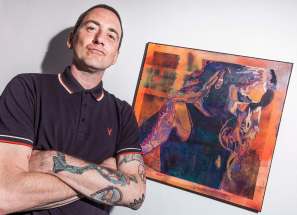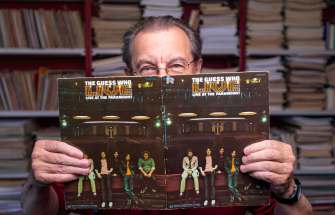Liar, liar… democracy on fire Social media and the internet have amplified the worst aspects of election campaigns, taking truth hostage in the process
Read this article for free:
or
Already have an account? Log in here »
To continue reading, please subscribe:
Monthly Digital Subscription
$0 for the first 4 weeks*
- Enjoy unlimited reading on winnipegfreepress.com
- Read the E-Edition, our digital replica newspaper
- Access News Break, our award-winning app
- Play interactive puzzles
*No charge for 4 weeks then price increases to the regular rate of $19.00 plus GST every four weeks. Offer available to new and qualified returning subscribers only. Cancel any time.
Monthly Digital Subscription
$4.75/week*
- Enjoy unlimited reading on winnipegfreepress.com
- Read the E-Edition, our digital replica newspaper
- Access News Break, our award-winning app
- Play interactive puzzles
*Billed as $19 plus GST every four weeks. Cancel any time.
To continue reading, please subscribe:
Add Free Press access to your Brandon Sun subscription for only an additional
$1 for the first 4 weeks*
*Your next subscription payment will increase by $1.00 and you will be charged $16.99 plus GST for four weeks. After four weeks, your payment will increase to $23.99 plus GST every four weeks.
Read unlimited articles for free today:
or
Already have an account? Log in here »
Hey there, time traveller!
This article was published 04/07/2019 (2354 days ago), so information in it may no longer be current.
By now, you may have heard that Prime Minister Justin Trudeau was snubbed by the president of Brazil.
It didn’t happen, but you may have heard it. You may have even seen it — or rather, thought you did — as a video of Jair Bolsonaro swiftly pulling his hand away from the one offered by the PM flew across social media earlier this week.
One video, two versions
That’s a level 5 yikes. pic.twitter.com/lQ3CCjh9pq
— Stephen Taylor (@stephen_taylor) June 29, 2019
A lot of people shared that edited video, it appears, including @globalnews. Woof. This election is gonna be a mess. And people should realize what Canada Proud is. https://t.co/n1WjIgVddQ
— Bruce Arthur (@bruce_arthur) June 30, 2019
It’s hard to say how many people saw that version of the video, along with its intimation that Trudeau, at the G20 Summit in Osaka, was rebuffed by at least one world leader. Thousands of people saw it, for certain, and some of them were journalists, at least a few of whom spread it to their social media feeds.
The thing is, the video — originally used as a short clip on a Global TV story about the summit — was misleading. A different version of the video, showing just a few more seconds of the interaction, provides the fuller context; Trudeau was alerting Bolsonaro that someone else wanted to shake his hand.
Once that was done, Trudeau and Bolsonaro turned to each other and gripped hands firmly, even warmly.
The spread of the misleading video is, in the grand scheme of things, not really a major story. (If there was a deeper discussion to be had, it ought to have wrestled with how a Canadian prime minister should relate to Bolsonaro, a far-right authoritarian with a list of extreme views too long to document here.)
Yet the video dust-up is illustrative of how thin the line between truth and propaganda lies, and how easy it is to fall for the latter. Shave a few seconds off a video, and it distorts from an unremarkable interaction to an enduring image of a politician’s incompetence. A few seconds is all it takes to make a fleeting moment into a fiction.
And to that, you must add all the other things we hear about, the other things we think we see. The other phantoms of the truth flashing through our screens, each staying just long enough to make an impression. Too numerous to pause and verify each instance, which is part of what makes it so hard to fight.
The lie shoots around the country in an instant. The truth pipes up in scattered mea culpas. By then, the damage is done, the untruth has already done its job, which is to alter perception. It doesn’t need to stand up to fact-checking. It just needs to be seen, and by being seen, project its reality onto the one that really happened.
In the coming months, as we head into the federal election, Canadians will be subjected to an onslaught of this type of propaganda. It will come at us from all sides, and mostly through social media. It will be shared by friends and family. It will be hard to disentangle the truth from the lies, from the things that start to simply feel right.
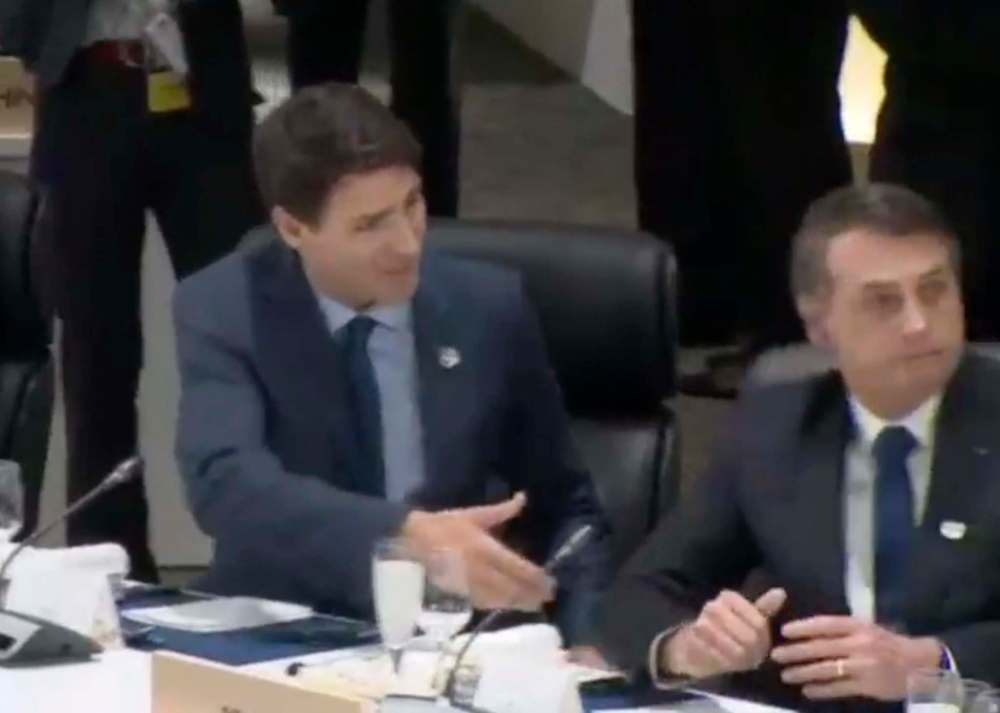
And where it’s coming from will be hard to determine. On Tuesday, Buzzfeed Canada and the Toronto Star jointly reported that foreign “threat actors” are now attempting to directly influence the federal election. In an unusual move, the Canadian Security Intelligence Service (CSIS) confirmed it.
The fact of it is, actually, fairly banal. Western powers have long meddled in other countries’ political process, facts well-established in foreign journalism but given relatively little attention at home. It is no surprise that other states would reply in kind, or seek to manipulate our political tides for their own benefit.
But how it happens now, as we saw so recently in the United States, tends to be instructive. Politics is always a game of selling the public on your beliefs, through means honest or underhanded. But the realities of social media offer new ways for this process to be twisted, for fabrications and lies to be spread unchallenged.
During the 2016 American presidential election, social media accounts linked to the Russian government’s online propaganda arm pressed hard on America’s demographic divisions: race, gender, religion. Posing as American activists, it spearheaded rallies both in support of Trump and against Trump, inflaming the chaos.
There were tens of thousands of these accounts. Their words and images reached millions of people. They often flogged extremist views: one particularly popular Twitter account, which claimed to be the unofficial account of the Tennessee Republican party, often promoted hateful hoaxes about Muslim Americans.
Eventually, after the election was over and under fire from the public and some authorities, Twitter and Facebook removed many of these accounts. They could not get them all. The propaganda activity continues, still poisoning political discussion in America, still doing its part to drive people further apart.
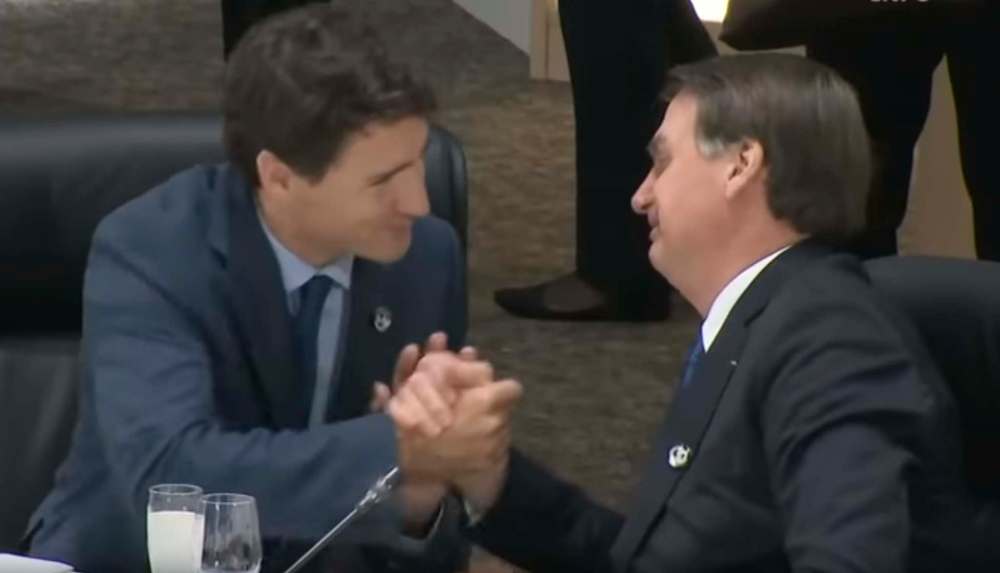
In Canada this year, the propaganda battlefields could look similar, if not exactly the same. The contenders won’t likely be pushing any specific policy, or even reasoned analysis of the cause and effect of the ideas being offered. What they will likely focus on is fomenting anger, and using it to make our political discourse more toxic.
Anger can be many things. It can be righteous, or misguided and violent. It can drive critical change, but it can also destroy hope. Above all, anger is easy to create: when people are frustrated, show them a villain. It doesn’t have to be real. It can be completely fabricated, as long as it tells a story people are willing to believe.
The implications of this approach are alarming. Canada has many substantive issues to wrestle with in this election, issues that require serious attention. The worst thing that could happen is for them to be washed away by a flood of split-second distortions intended to throw our political discourse into chaos.
There is a chance, every election, for the public to demand a meaningful debate on issues that impact us. To push parties to establish an expected framework for their governance on which we can hold them to account and, above all, to demand better each time. When Canadians go to the polls in October, we stand that chance again.
But if rage is what drives this election, a rage stoked by phantoms of the truth that fall to dust in the light, a rage driven by fleeting wisps of propaganda designed only to manipulate and divide, then we stand no chance at all.
All we can do is be ready to face what’s coming. It might be ugly, and it will take every public institution we have to resist it, including all of the political parties themselves. But it can be done, and it starts by recognizing that the only thing that stands between the lie and a truth is our commitment to seeking out the latter.
melissa.martin@freepress.mb.ca
Our newsroom depends on a growing audience of readers to power our journalism. If you are not a paid reader, please consider becoming a subscriber.
Our newsroom depends on its audience of readers to power our journalism. Thank you for your support.
History
Updated on Friday, July 5, 2019 12:16 AM CDT: Fixes typo.





